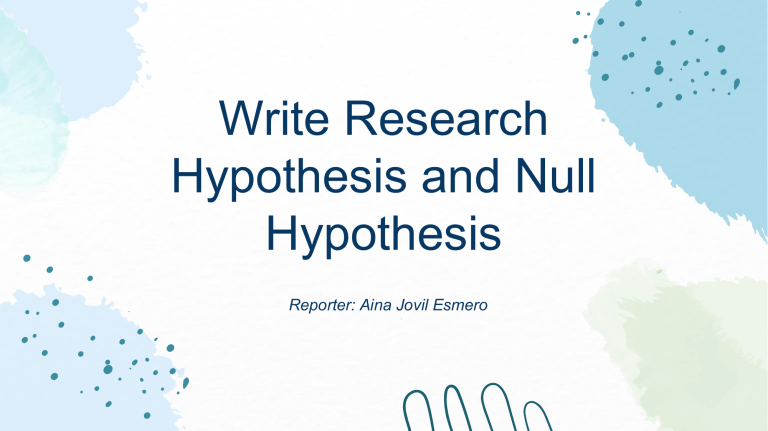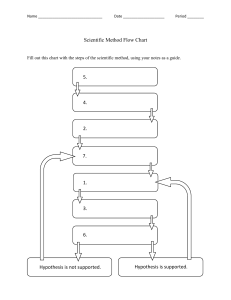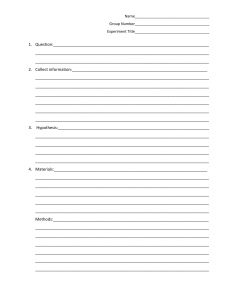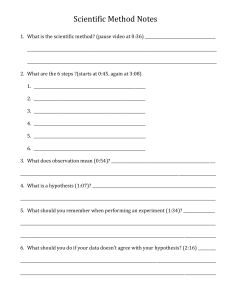
Write Research Hypothesis and Null Hypothesis Reporter: Aina Jovil Esmero Hypothesis Hypothesis is a statement of expectation or prediction that will be tested by research. It is a tentative answer to a research question that has not yet been proven. A hypothesis usually involves proposing a relationship between two variables: the independent variable and the dependent variable. (Example: Daily exposure to the sun leads to increased levels of happiness) Steps in Developing a hypothesis Ask a question and do preliminary research Formulate your hypothesis Refine your hypothesis Phrase your hypothesis Steps in Developing a hypothesis Ask a question and do preliminary research - The question should be focused, specific, and researchable within the constraints of your project. - Example: Do students who attend more lectures get better exam results? ● Your initial answer to the question should be based on what is already known about the topic. Look for theories and previous studies to help you form an educated assumptions about what your research will find. - Example: Students who attend school regularly can learn more and develop better study habits. Steps in Developing a hypothesis Formulate your hypothesis - Write your initial answer to the question in a clear, concise sentence. - For Example: Attending more lectures leads to better exam results. Steps in Developing a hypothesis ● • • • Refine your hypothesis - hypothesis is specific and testable. There are various ways of phrasing a hypothesis, but all the terms you use should have clear definitions, and the hypothesis should contain: The relevant variables The specific group being studied The predicted outcome of the experiment or analysis Predicted Outcome Example: Grade 12 Students who attend more lectures get better exam results Relevant Variables Steps in Developing a hypothesis Phrase your hypothesis - To identify the variables, you can write a simple prediction in if…then form. The first part of the sentence states the independent variable and the second part states the dependent variable. If a first-year student starts attending more lectures, then their exam scores will improve. Independent Variable (cause) Dependent Variable (effect) Types of Hypothesis A null hypothesis is a statement that assumes no relationship between two variables. - H0: The number of lectures attended by first-year students has no effect on their final exam scores. Alternative hypothesis states that there is a relationship between the two variables of the study and that the results are significant to the research topic. - H1: The number of lectures attended by first-year students has a positive effect on their final exam scores. THANK YOU!




